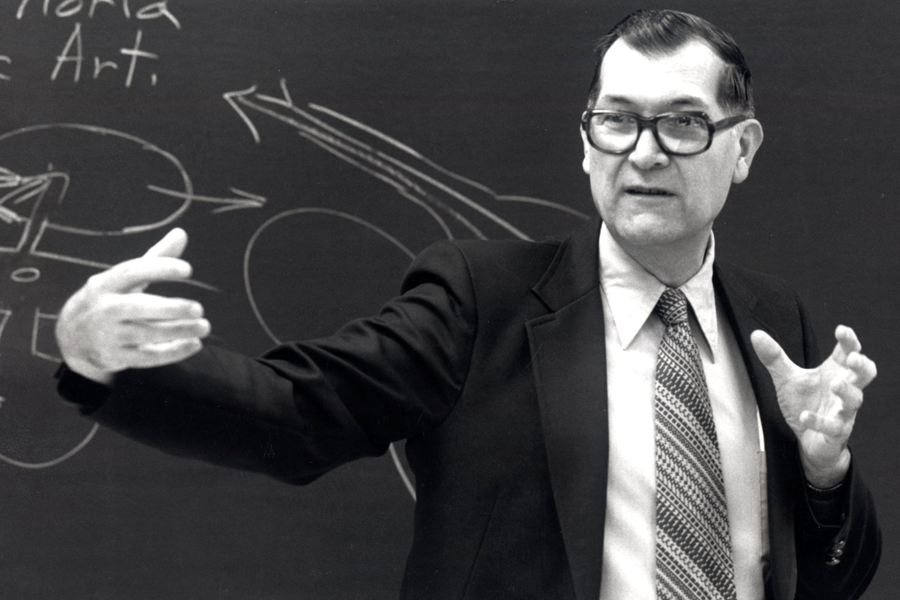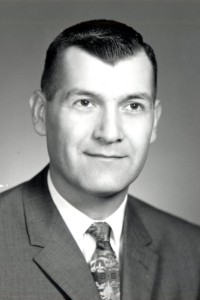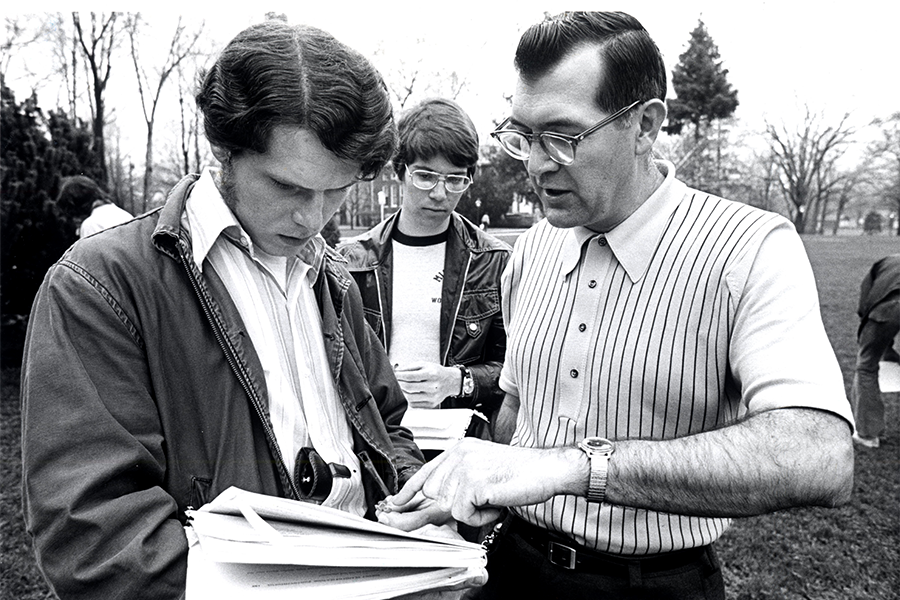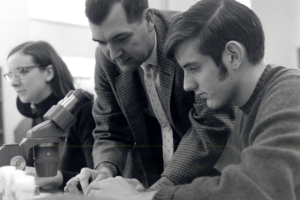Albion College to celebrate contributions of Dean Dillery at memorial service July 8
Related Programs
Related Posts
Connect With Us
June 22, 2023

By Jake Weber
Dean Dillery, professor emeritus of biology at Albion College, helped build the department and create a web of success for students and colleagues.
Dillery passed away May 24 in Battle Creek at the age of 94. There will be a memorial service for Dillery, and his wife, Marty, Saturday, July 8 at 2 p.m. at the Science Complex Atrium on the Albion College campus.
 He was predeceased by Marty, his wife of 60 years who died in 2021, and son, Scott, ’85. Dean Dillery is survived by three children, daughter-in-law, Sue Dryer Dillery, ’80, nine granddaughters and several great-grandchildren.
He was predeceased by Marty, his wife of 60 years who died in 2021, and son, Scott, ’85. Dean Dillery is survived by three children, daughter-in-law, Sue Dryer Dillery, ’80, nine granddaughters and several great-grandchildren.
“He was far and away the best chair biology ever had,” said emeritus professor Jeff Carrier. “We grew to be one of the larger majors and I think the respect people had for our department was what gave rise to our enrollment. You don’t get there without good leadership.”
Carrier emphasized Dillery had an unflagging interest in assessing and improving the department’s curriculum, especially for the new majors.
“He led us through a continuous review of our intro sequence. We all agreed the fundamentals needed to have breadth and depth, but we also had some strong personalities and independent thinkers – and trying to get us all functioning together was quite a task. Dean was a master of that,” said Carrier.
A zoologist and ecologist who wrote his dissertation on insect-eating birds, Dillery enjoyed 34 years of teaching courses on invertebrate biology, parasitology, developmental biology and ornithology. His surprising Albion legacy, however, involves academic “generations” of students with a shared passion for spiders.
“I took his invertebrate zoology class my sophomore year, and it changed my life forever,” said George Uetz, ’68, a biology professor at the University of Cincinnati.
Dillery likewise influenced the career trajectory of former Albion professor Gail Stratton, encouraging her to become Uetz’s first doctoral student and later hiring her to teach at Albion. As colleagues, Dillery and Stratton sent Matthew Persons, ’91, and Eileen Hebets, ’94, to Cincinnati, which was the first step toward their current professorships (respectively) at Susquehanna University and the University of Nebraska-Lincoln.
Both Uetz and Stratton also published undergraduate research projects with Dillery serving as co-author.
“He wasn’t a trained arachnologist, but he had a great breadth of knowledge,” said Uetz, noting Dillery went out of his way to help Uetz attend a national meeting of spider researchers, which in the 1960s, had about 25 attendees.

“He inserted a variety of funny stories and (dreadful) puns in his lectures and seemed to me a breath of fresh air,” Uetz remembered. “He would invite students to his house for an invertebrate tasting dinner. I was one of only three who showed up, as others bailed out because they thought it would involve chocolate-covered grasshoppers. Instead, we were treated to a feast of clam chowder, shrimp, scallops and crab cakes!”
“I took my first primate behavioral ecology seminar with Dean and this remains my primary area of research to this day,” said Persons. He added that his own primate behavioral ecology course was initially based in part on Dillery’s syllabus, and Persons continues to fine-tune his own course with this inspiration in mind.
 A third-generation Albion alumnus with 14 alumni relatives, Persons is equally proud of his academic legacy via the Dillery-Stratton-Uetz chain.
A third-generation Albion alumnus with 14 alumni relatives, Persons is equally proud of his academic legacy via the Dillery-Stratton-Uetz chain.
“Entire subdisciplines of biology have wandered through Albion College. We talk about science as knowledge building on itself, but it is also a history of academic relationships built on top of one another. I am grateful to have Dean Dillery as a part of my academic genealogy,” Persons said.
“I first knew Dean Dillery as a teacher, when I was an undergraduate at a different college and he was teaching at a field station in Ely, Minnesota,” said Stratton. “He showed me that studying Invertebrates was a great thing to do.”
Stratton eventually spent more than 20 years at the University of Mississippi, but fondly remembers Dillery and her time as a member of Albion’s faculty.
“It was a gift to move to Albion and continue to know Dean as a friend and mentor. He always worked to make the biology department the best it could be – and he always expected the best from his students! He opened doors for me to go in directions I did not even know were possible.”
